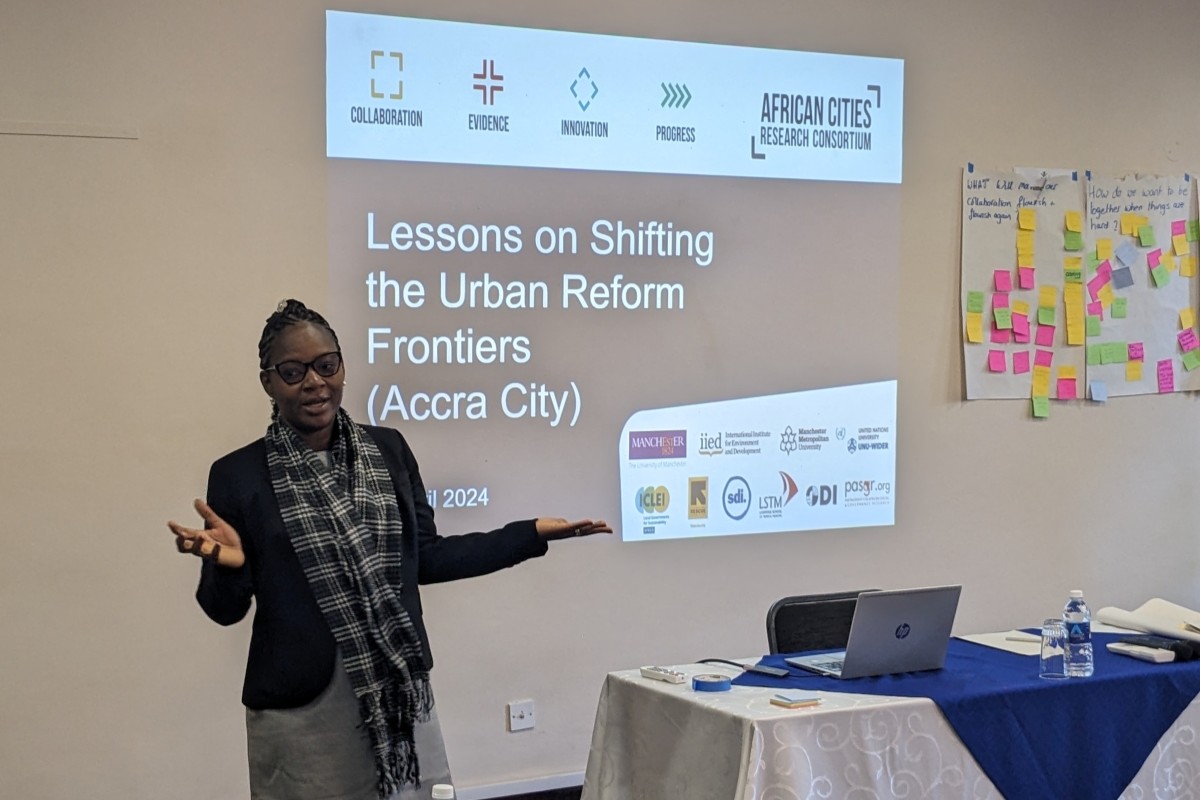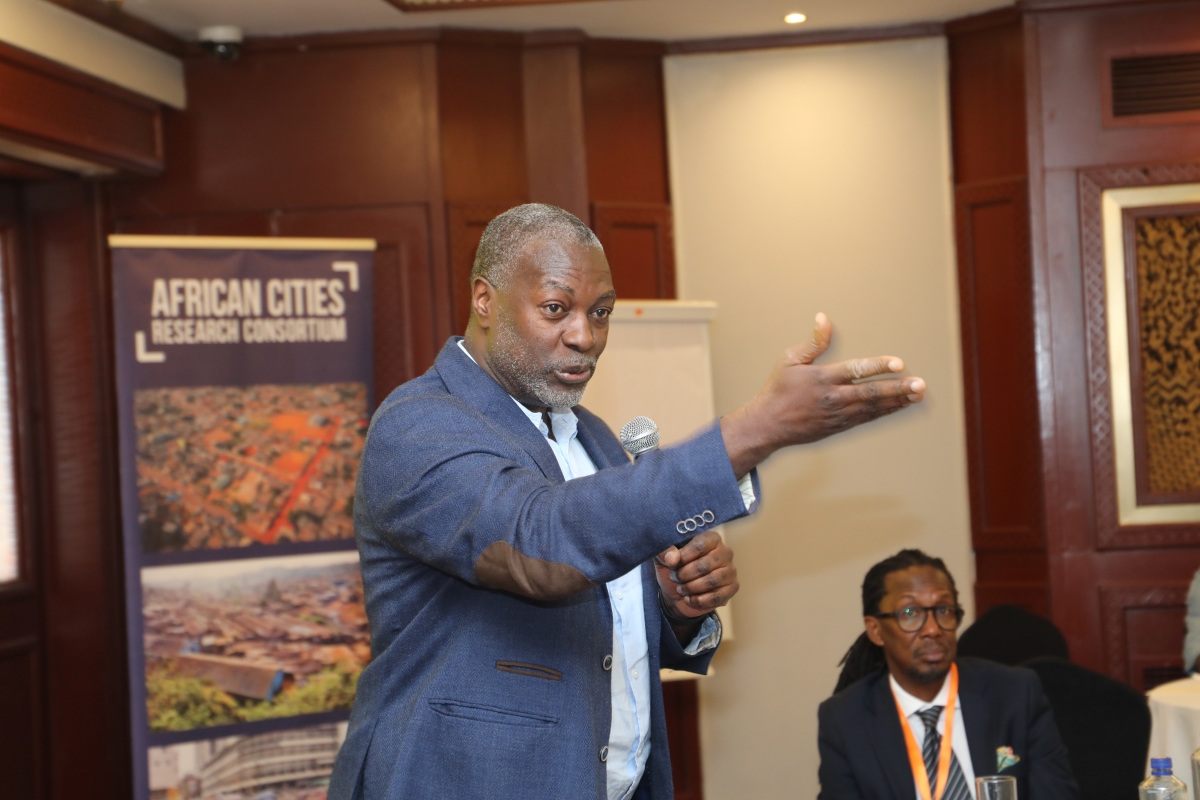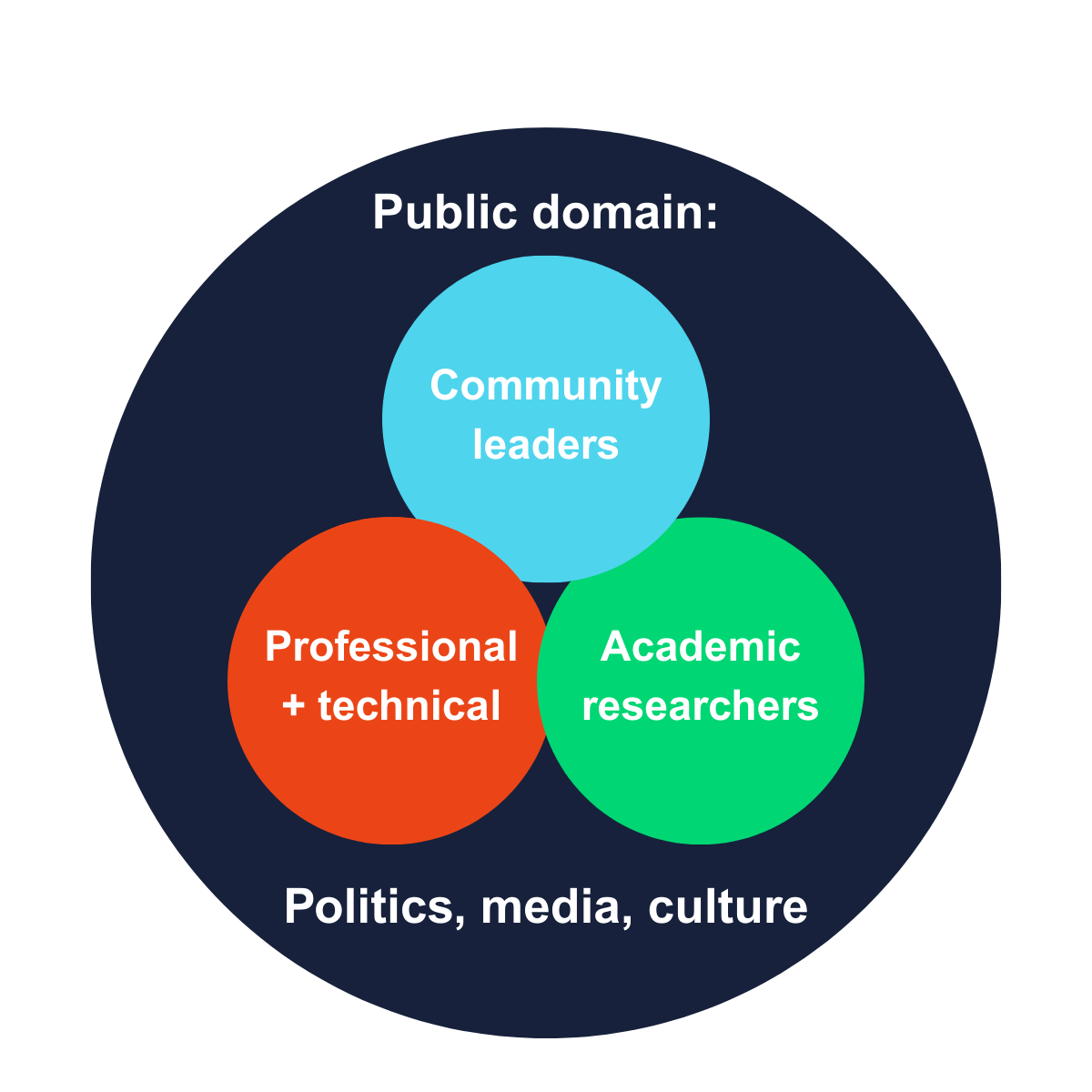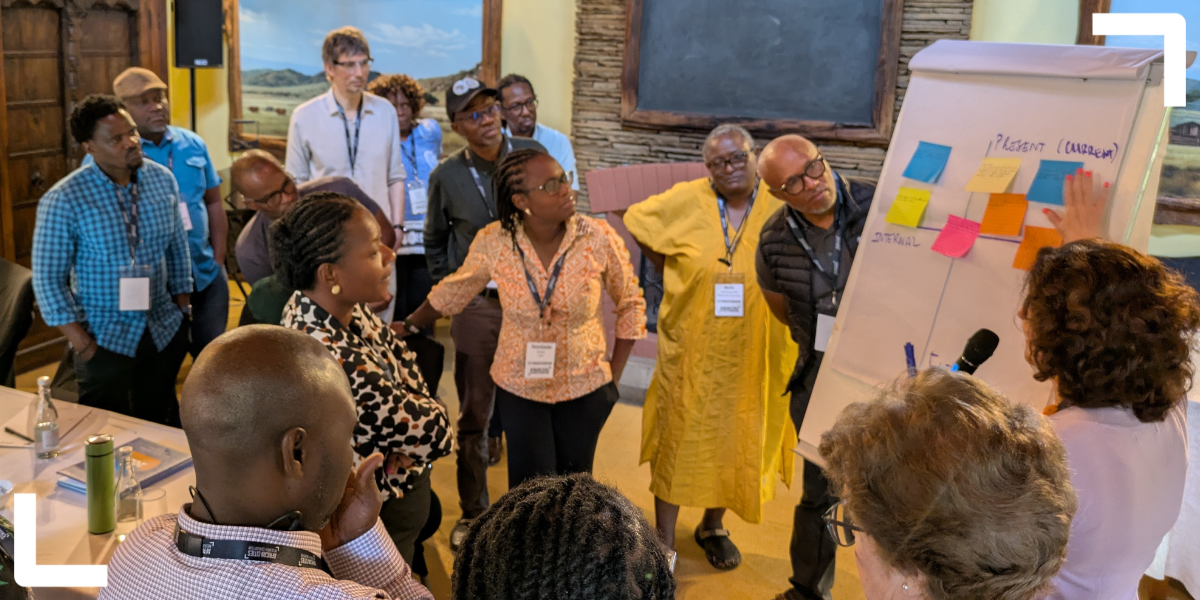Urban transformations: Aid, trust and ACRC
This is the fifth in a series of blog posts focusing on how urban reform happens and where ACRC fits into change processes. The first blog post focuses on how ACRC’s approach links to issue-based programming, the second explores urban transformation and the centrality of trust in politically engaged development programmes, the third takes a closer look at how ACRC adds value to urban reform, the fourth highlights how ACRC is helping build community capabilities to address urban challenges, and this fifth one outlines what donors can learn from ACRC’s approach to development.
By Diana Mitlin
In the original terms of reference for what became the African Cities Research Consortium (ACRC), DfID (as it was) asked for “operationally relevant research” to catalyse “more effective economic development and poverty reduction policies and programmes in African cities, by FCDO, its partners and other development agencies, including national and local government and civil society”.
We’ve benefitted from close relationships and insights from FCDO staff, both in London and based across the cities we’re working in, but our evolution has been very much up to us.
At a time of major structural change for the whole development sector, we wanted to reflect on where ACRC’s approach and experiences can make a broader contribution to development thinking, policy and practice. While we’ve recently discussed our particular take on issue-based programming and the “parallel tracks” of urban reform and the centrality of trust in reform processes, this blog highlights three key tenets of our approach that could have wider resonance across the sector at the current time.
1. A political perspective is essential to secure reforms in complex urban environments
The ACRC city teams are led by community-focused urban reformers – individuals who have been pushing forward the frontier of policy, programming and practice in African cities for many years. We’ve benefitted enormously from their deeply embedded perspectives, their historical knowledge and their extensive networks within city administrations. Our ongoing work in Harare around climate resilience and informality provides a useful demonstration of the significance of this expertise in securing tangible policy reform.
To this experiential knowledge and expertise, ACRC has added academic expertise in politics, urban systems and economics. These academics are predominantly based in African cities, but with additional capacity from the UK and elsewhere.
In each of the 12 cities we’ve worked in, governance challenges are acute. Common issues include significant revenue gaps for local authorities, how to deal with both customary and modern governance systems, how to respond to informal governance systems (both spatial and economic) and how to manage system integration. We are addressing these and other questions through carefully selected action research initiatives that make up our project portfolios in five cities.
As is evident from even a cursory reading of the news, progress is not universal. Cities are embedded in contested political processes, and new challenges frequently emerge. But the perspectives of those deeply embedded in the process are important to ACRC and appear useful to FCDO colleagues. Urban reform experts are now sharing their combined insights into the processes influencing policy and programming outcomes with FCDO staff (and others), bringing nuanced, practical and effective approaches to securing opportunities for urban reform.
We’ve found that a deep understanding and engagement with the politics of ACRC cities, combined with a flexible approach to programming, provides an effective, impactful approach. Our ambition is to catalyse large-scale, self-funded African initiatives, rather than donor-funded implementation projects. This echoes a recent ODI analysis that working politically can deliver greater value at lower cost.

2. Wicked problems often require a reform coalition
In addition to a strong engagement between active reformers and academics, we are consciously developing a modality of work that focuses on reform coalitions. Such coalitions are aggregations of relevant agencies, who come together to address areas of interest and advance common objectives in terms of urban reform. Typically, the coalitions that we are working with are task-focused and include the professional staff of local authorities, NGOs, academics, organised communities and some private sector agencies. They link groups that can advance their shared objectives more effectively if they work together. They are frequently connected to longstanding city platforms that offer effective means to amplify learning.
We have explicitly sought to draw together residents’ and workers’ organisations with those of higher social status. This can strengthen the voice of disadvantaged groups and improve the relevance of academic and professionally designed interventions.
Ongoing work we’re supporting around the Mukuru Special Planning Area in Nairobi demonstrates the transformative potential of reform coalitions – and also the long term dedication needed to realise change. We’re also seeing how the approach developed in Mukuru can be utilised in a settlement like Mathare.
We know that we are not new here. Previous FCDO-funded research has recognised the value of such approaches – and many other urban interventions have used coalition strategies to good effect. We have an explicit focus on learning how to do this better.

3. Local leadership – and funding – is key
We have long recognised that pro-poor political change has to be driven from below. It is simply not realistic to think that any major urban reforms can be parachuted in by external agencies. Nor would it be seen as legitimate if this was the case.
Building out from our work with coalitions, ACRC has sought to contribute to the work of city-level teams able to advance urban reform. Our approach at the project, city and programme levels are designed to support learning, embed that knowledge and associated capabilities in complementary ways in different agencies and actors, and to reinforce positive outcomes. ACRC involves the iterative, experiential and academic learning of communities, researchers and professionals within government agencies, aligned to share findings and advance together. These groups can reinforce each other, but are also located within the broader public domain, influenced by politics, media, culture and public sentiment, which has a huge influence on the issues that get prioritised – and the ones that don’t. People who are naturally embedded within their own public domain are much better placed to navigate and influence this complex tide of opportunity.

This resonates strong with the localisation approach recognised by the Prime Minister’s address to the UN and the 2023 White Paper.
While the reduced development ambition in the UK is frustrating for ACRC and our amazing group of collaborators (as well as many FCDO staff), our partners’ core interest in collaborating with ACRC is not to acquire development finance. Rather, it is to be part of an alliance to highlight and sharpen key innovations within existing efforts to support urban programming. ACRC partners recognise that to fundamentally improve almost all services within African cities, both service charges and domestic tax revenues are key.
A role for “outsiders”?
At a time when the global order feels distinctly unstable, national security interests are pushing for militarised borders and addressing the needs of the world’s most disadvantaged citizens is presented as an option that we cannot afford, strong respectful and equitable relationships are key to minimising conflict and maximising development opportunities.
Complex reforms – from providing basic services to the equitable incorporation of informal workers – are inherently political. They require local knowledge, credibility and legitimacy. But our experience also shows that sensitive and strategic support from UK-based organisations can play a useful role in nurturing alternatives, legitimising ideas, advancing new and more effective development options, and ultimately in realising locally held global ambitions for a better world.
While local reformers must be in the driving seat, support from people from the UK (and elsewhere) can add significant value to local processes. As ACRC’s action research projects progress across the African continent, we hope to demonstrate how a different approach to development research and programming can work in practice.
Photo credits: Chris Jordan, Know Your City TV
Note: This article presents the views of the authors featured and does not necessarily represent the views of the African Cities Research Consortium as a whole.
The African Cities blog is licensed under Creative Commons Attribution-NonCommercial-NoDerivatives 4.0 International (CC BY-NC-ND 4.0), which means you are welcome to repost this content as long as you provide full credit and a link to this original post.


